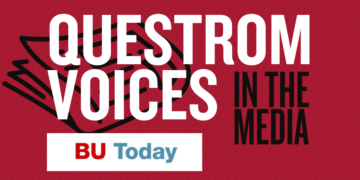Smokers’ cravings for cigarettes are strong on their own, but work by Questrom and Harvard researchers suggests one emotion can trigger an even more acute desire to light up. A handful of new studies published in the Proceedings of the National Academy of Sciences indicates that sadness is linked to more intense cravings for an immediate puff than the related negative emotion of disgust or a neutral control.
The findings, says Questrom researcher Keith Ericson, suggest new ways to understand the influence of specific emotions on addictive behaviors. The results may also help shed light on the way that sadness affects certain types of decision-making more generally. “We make different choices when we’re experiencing different feelings,” says Ericson. “When people are sad, they tend to crave an immediate reward.”
To learn more, Ericson and five Harvard researchers examined the links between smoking and sadness through four different studies. They included a long-term national survey with more than 10,000 participants, as well as experimental studies with hundreds of participants each. Each showed a unique connection between sadness and smoking.
The analysis of the long-term survey, for example, found that self-reported sadness was linked both to higher rates of smoking and smoking relapses.
The experimental studies, which showed smokers video clips designed to induce feelings of either sadness, disgust, or no specific emotion at all, bolstered the findings of the larger survey. Ericson and his colleagues found that videos designed to induce sadness led smokers both to be more impatient to smoke and to inhale a greater volume of smoke with each puff. The other conditions did not show similar relationships
The team’s work has clear implications on the fight against smoking. It also offers new insight on ways to think about our emotional state as we make decisions. “Our preferences and feelings aren’t stable over time,” says Ericson. “When you’re trying to make patient decisions, you might want to avoid doing that at a moment where you’ve been [emotionally] triggered. It might be better to make a decision when you’re in a colder [emotional] state.”
Read the paper in its entirety “Sadness, but not all negative emotions, heightens addictive substance use”


























